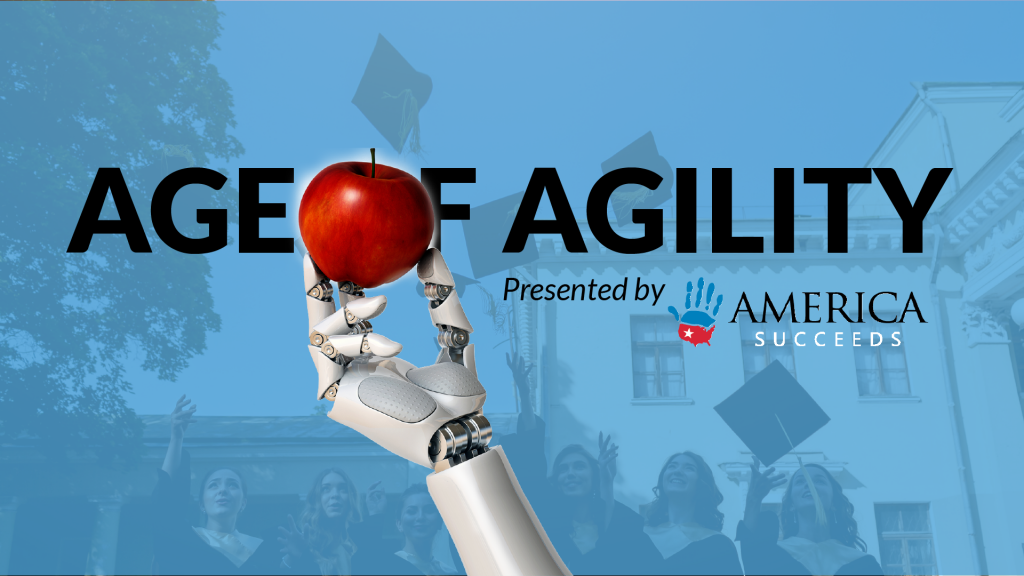This post originally appeared at GettingSmart.com on January 23, 2019. View it here and listen to the podcast!
Like many newcomers to the Mile High City, Tim Taylor came for the quality of life. He launched a youth-serving nonprofit and quickly met business leaders interested in better education statewide and, a dozen years ago, Colorado Succeeds was born.
After six years and some local successes, Taylor launched a national organization, America Succeeds (@AmericaSucceeds). Both are based on the core principles of business that apply to education: transparency, return on investment, accountability, competition and customers first. With support from the Albertson Foundation, Idaho was the second state to join (and they started one of our favorite fall conference, the EdVenture Summit in Boise).
In fall 2017, America Succeeds released The Age of Agility: Education Pathways for the Future of Work to call attention to the misalignment between what is being taught in schools—both K-12 and higher education—and the knowledge, skills, and behaviors required by the modern workplace. It’s one of the best summaries of the #FutureofWork and whats happening in the world.
The spirit of the report is captured in a quote from Google’s education evangelist Jaime Casap, “We’re preparing kids for jobs that don’t exist, with technology not invented, for problems we haven’t recognized.”
Automation powered by artificial intelligence and enabling technologies (like fast broadband, cloud storage, robots and sensors) is transforming the economy. “An enormous swath of jobs will be impacted,” explained Taylor. He points to autonomous trucks and automated shipping ports. Even highly skills jobs like Radiologists are rapidly being augmented by smart technology.
Age of Agility was a conscious effort to inject the future of work into the 36 gubernatorial races in 2018. It was also an effort to ensure that educators are valued and equipped with the agility to succeed in a rapidly changing workforce and to maximize their contributions regardless of the length of their career in education.
“Three R’s are table stakes now,” said Taylor. “The 4 C’s are the currency of future.” (He’s referring to critical thinking, collaboration, and creativity.)
In the year since launch, the America Succeeds team has been on an Agility Tour which included community conversations in nine states. The conversations uncovered three big ideas:
1. Lifelong Learners demonstrate agility and value the accumulation of the knowledge, skills, and abilities to succeed in a rapidly changing world.
2. Education systems reflect a shift toward competency; they are agile and responsive to both learner and employer needs.
3. Educators are valued and equipped with the agility to succeed in a rapidly changing workforce and to maximize their contributions regardless of the length of their career in education.
Taylor thinks every state should be attempting to create an agile policy environment because it is difficult to predict what will happen when and where.
America Succeeds is a business-backed advocacy group. They believe local businesses can help build a bridge across political turmoil and change in public education creating more continuity of effort for educators.
Taylor also sees work-based learning partnerships as a key role for businesses.
The first Agility Tour wraps up this month with a celebration of partnerships and reports on progress and promising practices. Then, it’s time for a new round of conversations about creating agile communities that support equitable opportunities for all young people.
Listen to the podcast with Tom Vander Ark and Tim Taylor here.




